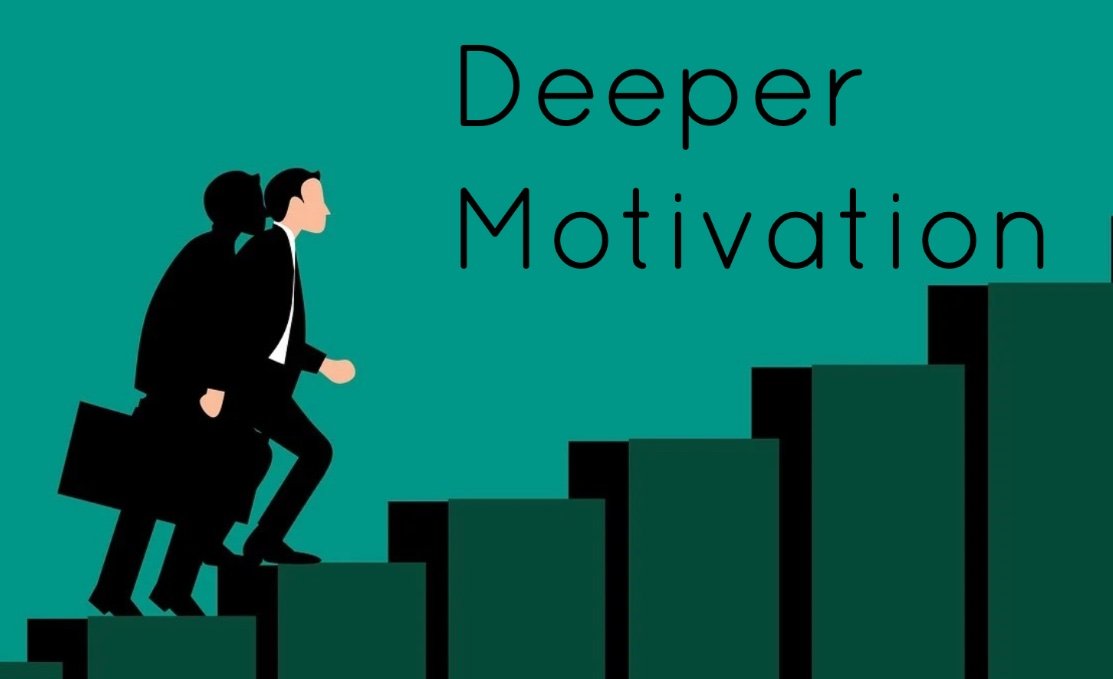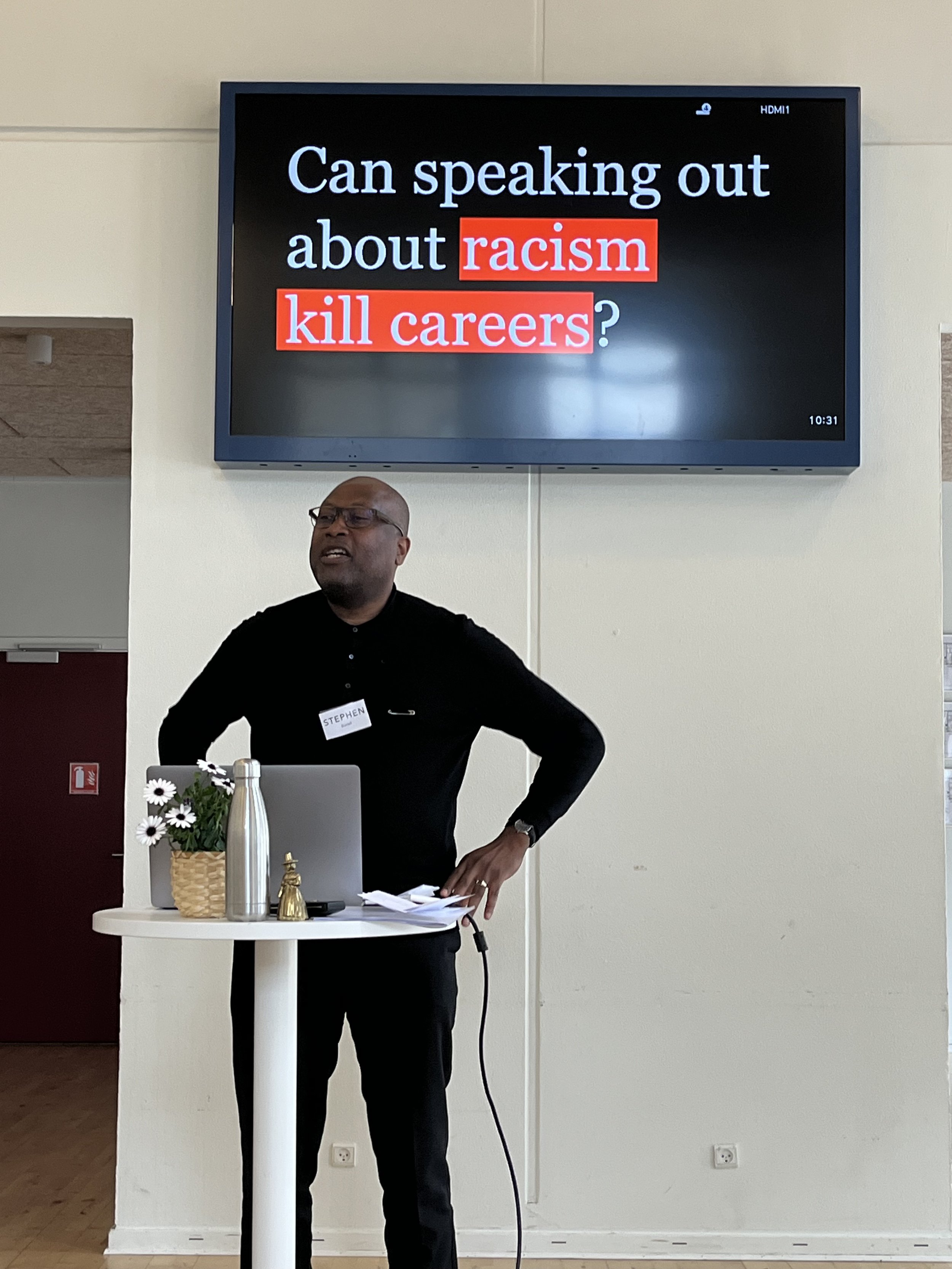I am now the Vice President of the Brotherhood for Professionals of Color (BPoC). In this role, I will manage our events and programs while supporting the President and other board members. Together, we aim to connect, mentor, and empower professionals of color, advocating for diversity and fostering a more equitable and inclusive workplace culture. Are you or your organisation interested in collaborating with us? Please reach out via email to discuss how we can work together.
Free from biases
Diversity, equity and inclusion (DEI) is not only about skin colour; it’s about giving people who have talent the opportunity to express that talent. Often, the starting point can be biased, leading those who are not white to question:
a) Whether they possess the required skills, and
b) If they are the best person for the job.
I advocate for DEI policies because I recognise that many talented individuals from minority backgrounds deserve the same opportunities as the majority. In practice, minorities often need to be exceptional to secure white-collar jobs because societal structures have historically disadvantaged them. I think the western world was built on a patriarchal framework by the white majority, and it was not originally designed to include minorities.
Rude awakening
There is an old adage, "if you're not paying for the product, you ARE the product.” Which means that if you are using something for free, then the company which owns it is taking the data you put on it and charging firms to advertise at you instead.
““Opinions are not as important as ideas.””
Trust yourself
c/o Medium
Artificial Intelligence (AI) lacks business acumen, it cannot delve into a business and apply nuance, experience, or patterns learned from other contexts. Back in the days when I used to sell clothes and accessories, I visited various businesses and noticed that many of them faced similar problems, despite different contexts. I think by observing these patterns, I can now have meaningful conversations with leaders and senior executives about their businesses. While AI can analyse data and provide information, it cannot interpret it in a way that human beings can understand, because it cannot grasp the context of what is truly happening in a business. What do you think?
Can they see the correlation?
Moving from asking insightful questions to internalising that information and then communicating it to decision-makers is what I do – bridge building, connecting the dots between various elements. As without this skill, building a business case becomes difficult. Trust is built when you articulate value bridges unique to your customers in a language they understand. By asking better questions, you’ll better understand how your services help your customers achieve their outcomes.
Closely linked values
What does inclusion of diversity mean to you?
I think emphasising the importance of inclusion is the key to unlocking the value of diversity. Inclusion allows the unique perspectives, experiences, and backgrounds that your employees bring to truly contribute to your organisation’s ability to innovate, challenge assumptions, and identify risks. By fostering an inclusive environment, you will ensure that employees feel safe and secure to speak up and share their ideas, enabling them to fully participate and contribute to the organisation's success.
Build trust
I think it's extremely helpful and important to have a personal understanding of underrepresented groups. As this will make it easier to measure and report on diversity at work and take positive action to improve the representation of minority groups in the workplace. And from my perspective it was encouraging to see so many employers taking steps to do this on a voluntary basis before the ESG reporting comes into force. Do you have colleagues from ethnic minority groups? Are you encouraging them to take part in external networks, for example, Professional Women of Colour (ProWoc) or the Brotherhood for Professional of Color (BPoC)?
Belonging at work
DEI in the workplace and what it really means is a constantly evolving topic that you can’t learn from a book. I think both the personal and legal insights is what matters when trying to truly understand the position of underrepresented groups in the workplace through listening to their first-hand experiences. I have been guiding HR teams about the pressing issues they face and the right language to use when referring to a particular issue. When you don’t know what it’s like first hand to be part of an underrepresented group in the workplace then it’s worth taking time to understand how you can gain this insight.
Listen to your employees
One of the most important things I have learned about Diversity, Equity, and Inclusion is the importance of active listening to your employees. And by doing so, you will gain insights that will identify your organisational challenges. Which subsequently will allow you to target your focus areas and tailor your approach to effectively maximising your impact. I think connecting with others is key, as we are all facing similar challenges.
Deeper motivations
Behaviour change is complex and often requires more than just presenting information, it's not just about addressing what people know. I think behavioural change may require new habits, offering incentives, or employing behavioural psychology techniques that go beyond simply presenting information. To truly impact behaviour, it's often necessary to consider the underlying motivations, beliefs, and environmental factors influencing individuals, and then create targeted interventions or messages that resonates with those underlying drivers. What do you think?
Style never goes out of fashion
Today, Facebook reminded me what I have known for years, which is the more you know, the more you realise how little you do know! In leadership, every detail counts, including the way we choose to present ourselves. Let your style speak for you and make sure it’s saying that you’re a leader worth following. Everyday ask yourself the question, “If your style were to speak for you today, what do you think it would say? What do you wish it said?”
““Good manners will open doors that the best education cannot.””
Tips on Thursday
To build an unshakable mindset:
• Lead by example
• Do the right thing
• Control your feelings
• Control your thoughts
• Ignore others' opinions
• Start acting on your dreams
• Control your interpretations
• Focus on what you can control
Look inward first
As a DEI advocate one of the things that scare me in Denmark is the gaslighting around racism, homophobia, sexism, etc. If everybody is singing the same song and thinking the same things, then you are setting yourself up for failure as you will be blindsided in your echo chamber. I think that if you put a good person in a bad system, the system will win every time. In the majority of cases the statement is true, the people we surround ourselves with makes a difference. There are some notable exceptions to this statement, for example, Nelson Mandela. In my experience, remarkable people interact with a diverse bunch of people. I think you can get a sense of a person by looking at their social media accounts – Who are they connected to, and who do they follow?
It's just a discussion
If everyone is agreeing with you then you are in an echo chamber and you have just chosen the people to speak to. Controversy is just saying something that someone else just doesn’t agree with. I’m never afraid to speak about any subject that I have knowledge about as I only say things that I believe is fair.
You can book me for workshops, keynote speaking, coaching, DEI trainings or implementation facilitation here.
Humble yourself
Nowadays I think there is a thin line between fame and infamy, in fact the line is extremely blurred in our contemporary society. People are willing to do anything, even negative and controversial things to gain fame and they are often rewarded for it. Meanwhile, there are others who gain fame simply by living their lives publicly, even if it means exposing their vulnerabilities or flaws. Both groups receive attention and validation, regardless of their actions or intentions.
Know your place
I have developed a resilient mindset in the face of adversity. The truth is I know very well what it’s like to be marginalised and be told subtly or directly that my contribution is not welcome. I have had to tell myself repeatedly, “You may not control all the events that happen to you, but you can decide not to be reduced by them. If they don’t give you a seat at the table, bring a folding chair.”
Are you open to change?
This week I have attended two conferences: “Ethnic Diversity in Danish Journalism Education” at the Danish Media & Journalist High School and “Role Models Will Create the Diversity of the Future” at the Danish Industry headquarters. Yet again it was confirmed that there are double standards bordering on hypocrisy in the Danish culture, as I think integration is a two-way street and the opportunities within DEI are full of cultural blind-spots. I’m fully aware that you cannot be friends with everyone and that whatever point of view you hold, you will upset someone. Why do HR departments in Denmark never have any ethnic minorities in them? Why do DEI consultants who are from minority backgrounds have less access to the job market?
Be grateful
The essence of mental adjustment and atonement can be summed up in one word: GRATITUDE. It doesn’t matter how disturbed you are, it doesn’t matter what’s bothering you, you can solve whatever it is - just be grateful. Gratitude is everything, it’s the antidote for all stress, anger and frustration, it’s the entire process of mental adjustment. I think that when you change your perception you can change your outlook of life.
““Wait like one who understands.” ”
A fear setting exercise
Tim Ferris c/o YouTube
Fear-setting is an interesting approach to goal setting as it focuses on identifying and addressing our fears rather than just setting goals based on aspirations. Try this fear-setting exercise to set your fears free:
- What are you most scared of?
- What are the worst things that may happen?
I think by looking at what we fear the most and envisioning worst-case scenarios, we can better understand the potential risks and obstacles that may come our way. This exercise can help us to prepare mentally and emotionally for challenges, and even devise strategies to mitigate those risks. In this way we can gain clarity on what truly matters to us and what we need to do to overcome obstacles.
““Marketing is the place that understands and anticipates what people need and desire.””
Seeing things from a different perspective
Do you remember Goldilocks and the Three Bears?
This is a clear illustration of societal conditioning. As you know, Goldilocks is portrayed as a white character with a sense of entitlement, freely acting on her impulses, taking what she wants, and showing little concern for consequences. The narrative appears to condone and even facilitate her inconsiderate behaviour. On the other hand, the Brown Bears are hardworking individuals who maintain their livelihood, food, and lifestyle. Despite Goldilocks' careless actions, the bears are portrayed as submissive, continuing to accommodate her in their home, inadvertently conveying a message of tolerance, acceptance, and patience toward those who resemble the Goldilocks archetype in society.





















